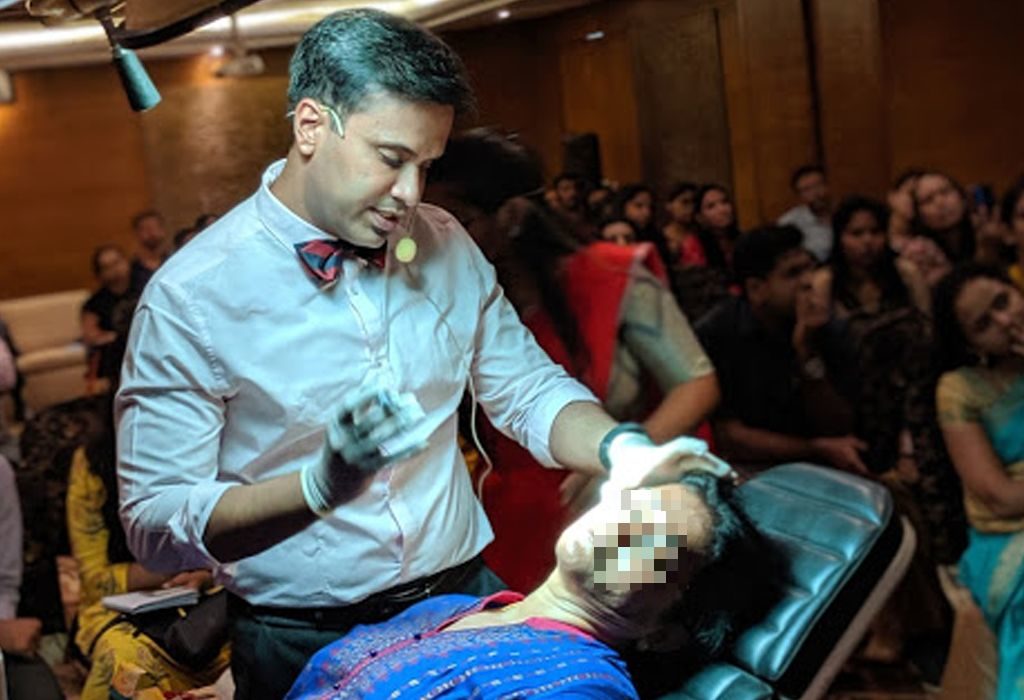 Plastic surgeons have always been in a great demand. Taking the lead in availing their services have been people working with the visual media such as those in the entertainment sector, consumer facing industries and even politics etc. that have the job to remain in the public eye and therefore it is important for them to look good. Most patients who come to plastic surgeons are victims of burns, trauma, injury, acid scars etc. and need to improve their functional and physical appearance by reducing scars and reconstructive the disfigured areas to as close as normal as possible.
Plastic surgeons have always been in a great demand. Taking the lead in availing their services have been people working with the visual media such as those in the entertainment sector, consumer facing industries and even politics etc. that have the job to remain in the public eye and therefore it is important for them to look good. Most patients who come to plastic surgeons are victims of burns, trauma, injury, acid scars etc. and need to improve their functional and physical appearance by reducing scars and reconstructive the disfigured areas to as close as normal as possible.
It is therefore natural to assume that aesthetic surgery is a natural part of being a plastic surgeon. But that is not the case. A residency and training in plastic and reconstructive surgery does not necessarily make a plastic surgeon an expert in aesthetic surgery. While it is a universal truth that plastic surgeons are better qualified in knowledge on facial aesthetics, there are few who have an actual hand on practice in the elective aesthetic surgery. This is due to more of the cases being focused in general plastic and reconstructive services. But the general consensus from a patient’s point of view still remains that a plastic surgeon primarily does facial aesthetics.
The advent of zoom meetings and advance HD cameras for selfies makes even a single wrinkle noticeable. And more and more people from all walks of life are seeking facial aesthetic treatments to correct various issues like wrinkles, sagging skin, dull skin, facial lines. This tremendous increase in demand and the data by the American Academy of Facial Plastic and Reconstructive Surgery cements the fact that plastics surgeons need to hone their aesthetic surgery skills to satisfy the patients. This is where the expert courses like the facial aesthetic treatment course by International Academy for Facial Cosmetic Surgery helps.
This preoccupation with one’s self image and looks has been the part of many studies and each one of them has confirmed that good facial aesthetic surgery procedures produce a more positive psychological changes in the patients and gives a boost to their social well-being. Facial aesthetic course for plastic surgeons helps them become a part of the client’s journey to self-satisfaction. Aesthetic surgery is actually a plastic surgery sub-speciality, and dramatic rise in the number of these procedures performed worldwide has prompted most other specialities to include specific aesthetic courses in their training. Courses on lasers and chemical peels, certifications in fillers and neuromodulators are the most common facial aesthetic procedures in demand.
How a certification in facial aesthetic helps plastic surgeons
The benefits of having a facial aesthetic course certification on your side has multi-pronged advantages such as
- Get a leap ahead: More and more institutes are now incorporating facial aesthetic treatments such as correction of facial features like chin, lips or nose in their regular curriculum. For a qualified and practicing plastic surgeon even completing a simple Botox certification gives him an edge over other plastic surgeons. Patients are going to be more trusting of a plastic surgeon who can help give quick and simple solutions.
- They are easy to learn and include in your practice: As a plastic surgeon a dermal fill course in Mumbai is going to be a breeze for you to learn and give you the much needed hands on practice. You can immediately include the facial aesthetic treatments in your practice.
- Increased earnings: There is no official procedure in non-surgical facial aesthetic treatments and with your plastic surgery background you will have patients coming back to you for treatments in no time at all. This means increased revenue with no added or additional establishment costs.
- You can expand your professional horizon: You will be able to find more fulfilling employment opportunities with experienced aesthetic surgeons, you can partner with spas and clinics etc. and expand your professional reach to different areas

The key difference between a plastic surgeon’s practice and a facial aesthetic practice is that a plastic surgeon does not want the patients to return whereas an aesthetic practitioner wants a long term relationship with the patient, and want their patients to return as often as possible. Patient’s will return when you offer them a holistic and comfortable environment. For example, if a patient comes to plastic surgeon for the treatment of a burn mark or injury, he will definitely also opt for laser skin resurfacing for scar removal post treatment. At IAFCS we include all aspects of patient care in aesthetic surgery in our course. So, if you have an interest in looking good and helping your clients look good too , the various facial aesthetic course and certifications at IAFCS are the perfect change to become a professional aesthetician.

